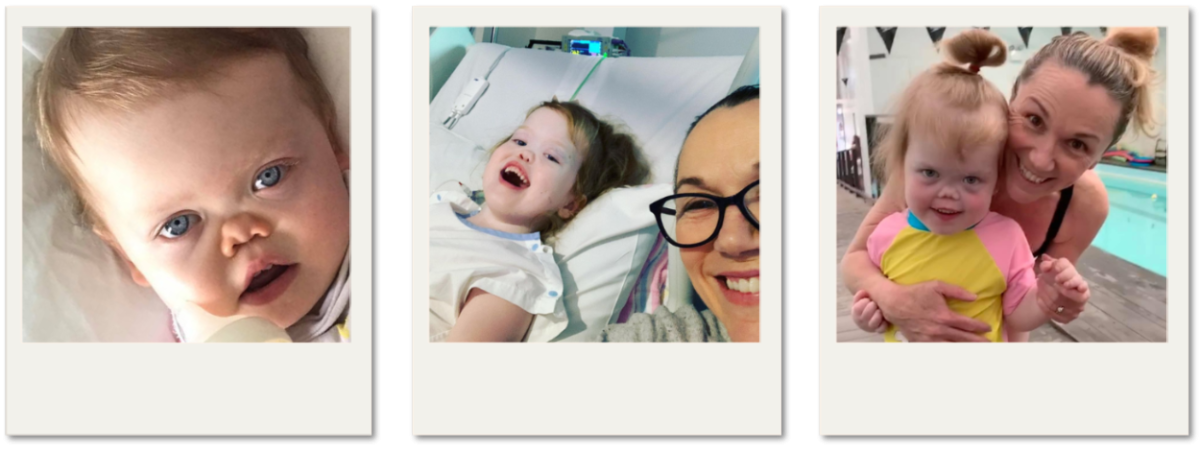Kymie’s Story

“We were handed a photocopied pamphlet and told, ‘this is what your Daughter has’. No one in Australia had Frankie’s rare genetic condition. There were no specialists and no support groups for Acrodysostosis. I was so alone. But through Kindred I found my people. I found my tribe.”
When my daughter Frankie was born, her nose looked a little different. But there’d been forceps involved in her delivery, and the obstetrician said not to worry, that it would pop out in a couple of days. We waited and waited, but it never did.
We were eventually referred to the cranial facial unit at the Children’s Hospital, where we saw a host of specialists. It wasn’t till we walked into the Gentecist’s room that the tone of the conversation changed. He started listing off things like Low nasal bridge. Strange fingers. Strange toes. Then the words ‘syndrome’ and ‘chromosomal abnormality’ tumbled from his mouth. We left the appointment totally shattered. Afraid and unsure about what the future would hold for our beautiful little girl.
Our rare daughter
When the results of the x-rays and blood tests came back, we were handed a photocopied pamphlet from the 70s or 80s and told, ‘This is what your Daughter has’. The diagnosis was a very rare genetic condition called Acrodysostosis. So rare, in fact, that Frankie was the only person in Australia with AcroD. There were no specialists in the country, no one to seek a second opinion from and no support groups. We were entirely alone.
Every dream that I had for my child just came to a screeching halt. And, of course, life is not like that. But those were the early days, and my brain was going through worst-case scenarios.
Frankie was also diagnosed with Global Developmental Delay as a result of AcroD. That list of diagnoses would later include Hydrocephalus (requiring brain surgery when Frankie was four-years-old), Sensory Processing and Obsessive Compulsive Disorders, ADHD and Autism.
The financial and emotional costs
We started Early Intervention before Frankie was even 6 months old. This was before the NDIS, so we funded therapy ourselves. And honestly, it has been a huge financial sacrifice since then. With all the medical and therapy appointments, I wasn’t able to return to my career. Frankie needed me. So my husband Michael worked 6 days a week, often 12 hours a day, so that we could afford for me to work part-time.
Even when the NDIS came along, life was still incredibly hard. Frankie’s funding was limited, and I had no hands-on support from family. She needed constant supervision, and her little sister Georgia was just starting to crawl. I was so stressed that if I turned my back for even a second, one or both of my children would be hurt. I was rake thin, not sleeping or eating. I survived each day off nervous energy.
No longer alone
Discovering peer support was a real turning point for me. While I had been involved in the Acrodysostosis community online, this was different. Being a part of Kindred, there is a real sense of belonging. I just felt like found my people. I found my tribe.
When your child is given a diagnosis, there’s no handbook that they give you that has the answers. They don’t say welcome to disability parenting. You just kind of have to figure it out for yourself. Meeting other parents and navigating the journey together has changed my life. I have a safe space to share my experience. And to know that no question that I could ask would ever go unanswered or dismissed or criticized is just amazing. I no longer felt alone.
Kindred has given me a real sense of purpose. I feel empowered. I’ve learnt to advocate for myself, for my child, and my family. I’ve learnt about Frankie’s rights and that I can make a real difference in her life and what she can achieve. I’ve grown so much as a Mum.
